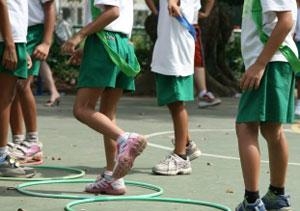Kids missing out to protect their parents
Economically disadvantaged young people suppress their own needs to protect their parents from social stigma, missing out on educational and social opportunities, a study has found.
Economically disadvantaged young people suppress their own needs to protect their parents from social stigma, missing out on educational and social opportunities, a study has found.

Economically disadvantaged young people suppress their own needs to protect their parents from social stigma, missing out on crucial educational and social opportunities, a University of New South Wales study has found.
Making a Difference: Building on Young People’s Experiences of Economic Adversity, to be launched this week, is one of the first Australian studies to consider the real experience of economically disadvantaged young people.
Chief investigator, Professor Peter Saunders from UNSW’s Social Policy Research Centre, said the report goes behind poverty statistics, which only focus on the adult experience of economic disadvantage.
“This study has given us a unique and rare view into the lived experience of children, how they cope with disadvantage and what they think can be done about it,” said Professor Saunders.
The qualitative study documents how young people experience exclusion in the family, at school, and in their communities. It involved more than 130 interviews with children and young people (aged between 11 and 17 years) in NSW, Victoria and South Australia and their parents, teachers and service providers.
Many of the interviewees faced economic disadvantage combined with complex domestic lives, caring and other responsibilities, sub-standard schooling, few options for out-of-school activities, and unsafe neighbourhoods.
“We know that around 12 per cent of Australian children live in households that are receiving less than 50 per cent of the median income. Poverty in this country isn’t rare, nor is it short-term,” said report author, Dr Jennifer Skattebol.
“It’s alarming that so many of these young people are unable to take up educational and social opportunities because their families cannot afford the ‘additional costs’ involved.”Dr Skattebol said policy needs to focus on family and student support during the middle years of schooling.
“Australia focuses well on early education and transitioning to work but in between there is next to nothing. These kids are fading out of the education system because of the lack of support during the crucial middle years and are finding themselves without the skills and credentials to pull themselves out of economic adversity,” she said.
“For Australia to have a genuine ‘education revolution’ young people must be able to access the resources and opportunities they need to succeed,” said Professor Saunders.
The report will be launched on Thursday night (August 9) at an event co-hosted by the Social Policy Research Centre and The Smith Family.
Media contact: Fran Strachan, UNSW Media Office | 9385 8732 / 0429 416 070
The study was conducted with support from the following partner organisations: Association of Children’s Welfare Agencies; Australian Government Department of Education, Employment and Workplace Relations; Brotherhood of St Laurence; Mission Australia; South Australia's Social Inclusion Initiative and Department for Education and Child Development; The Smith Family; Victorian Government Department of Education and Early Childhood Development.